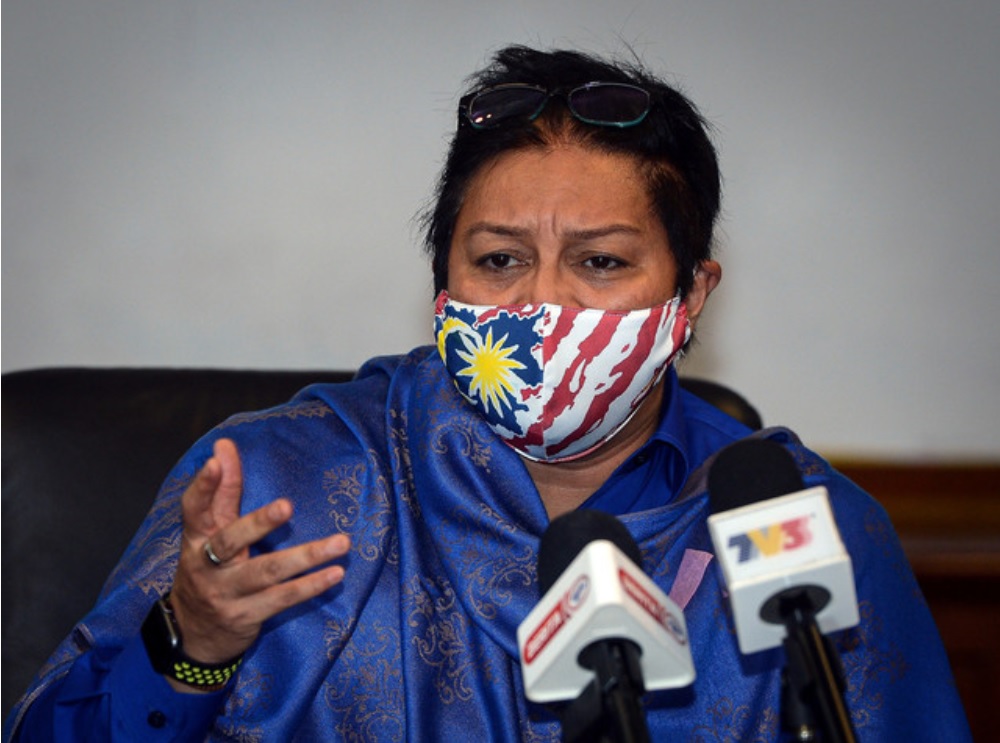KUALA LUMPUR, Sept 1 — Malaysia should introduce a law for recall elections to prevent lawmakers from hopping to other parties after they were elected, Umno MP Datuk Seri Azalina Othman Said said today.
Azalina, who was Dewan Rakyat deputy speaker until she resigned on August 23, said introducing recall elections could be a solution as voters would regain the right to decide anew if the lawmakers they elected chose to defect.
Azalina welcomed discussions between the new government, Opposition lawmakers and independent lawmakers on introducing laws to prevent party-hopping, but personally recommended recall elections as the ideal method.
“However, I wish to propose that the best form for anti-party hopping laws is to introduce Akta Pemecatan Ahli Parlimen (Recall Act) where voters can withdraw the mandate that they had given to people’s representatives that had betrayed them.
“Therefore, the right to choose a new People’s Representative or to retain that People’s Representative is returned to voters,” she said in a statement posted on her Facebook page today, referring to elected lawmakers by their alternate title of Wakil Rakyat or People’s Representative.
As the Pengerang MP, Azalina said she planned to submit a notice of motion to the Dewan Rakyat speaker for a Private Member’s Bill to propose the new law, in conjunction with the 64th National Day yesterday.
“The Private Member’s Bill motion that is proposed is titled Rang Undang-Undang (RUU) Pemecatan Ahli Parlimen 2021 and I hope this motion will become a starting point for the introduction of ‘Recall Election’ in the Parliament meeting this September 2021,” she said, referring to her planned motion to propose a Bill for the new law.
Azalina also thanked electoral reform group Bersih 2.0 and expressed appreciation to it over its research that she said had helped the public to understand the mechanism for recall elections.
She also voiced her intention to set up a caucus for parliamentary reforms and democracy of all parties for interested MPs, which she said will be aimed at strengthening Malaysia’s parliamentary institution and to uphold parliamentary democracy in the country.
Earlier in her statement today, Azalina had pointed out that there have been repeated instances of elected lawmakers betraying the parties that had nominated them, as well as those who had worked hard to garner votes for them from door to door, and also voters who had voted for them by trusting them as representatives of political parties and election manifestos.
Azalina said Malaysians were beginning to doubt the purpose of voting if elected people’s representatives could pawn off the public’s mandate after elections.
Azalina said leaders of her generation should accept that competition between political parties is positive and beneficial to the public if based on reasonable rules of the game, and not triggered from political parties splitting up.
She said political competition should be made noble and not eliminated or be filled with hatred or chaos.
She said political leaders of her generation and the younger generation should be brave to work together to make politics a professional career choice that is respected instead of looked at with disdain, noting that the public’s perception towards politicians of today is very shameful.
She then went on to propose recall elections for voters to again have the say when it comes to elected lawmakers.
Previously on August 29, Azalina had also on Facebook shared a list of answers to frequently asked questions about anti-hopping laws, explaining that such laws are meant to prevent elected lawmakers from switching together with the seats they had won in elections to another political party after elections.
She said there were currently no laws against party-hopping in Malaysia, adding that such laws would enable voters to decide if a lawmaker who had switched parties could keep their seats, and would also help maintain the balance of power in the Dewan Rakyat and reduce power struggles among political parties.
She had explained that recall elections is a mechanism that would enable voters to withdraw the mandate they had given to a lawmaker if the latter switched political parties, with a by-election to be then held to choose a new lawmaker for that seat.



















